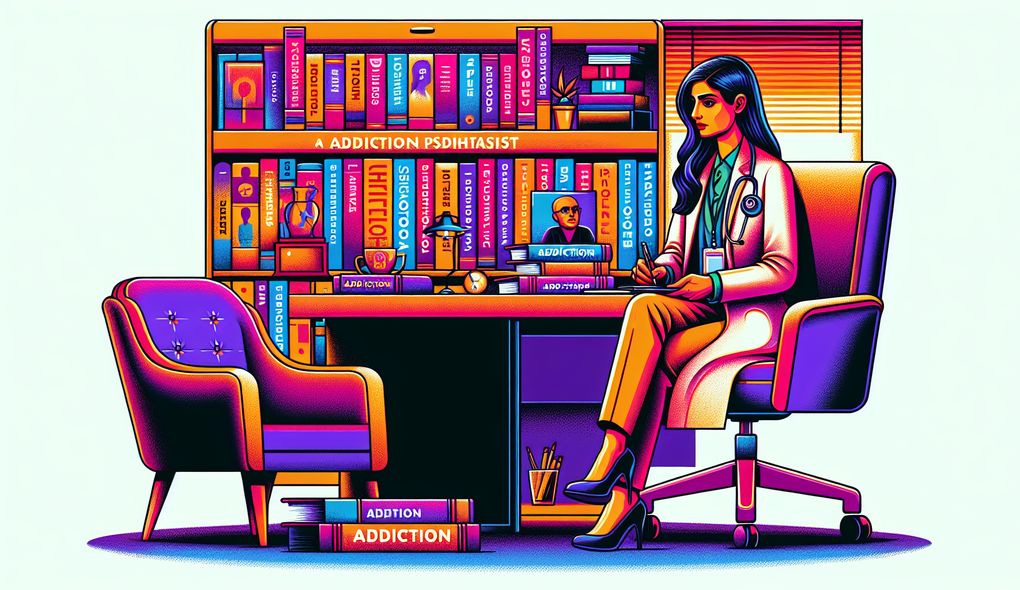How would you demonstrate compassion and understanding for patients struggling with addiction?
INTERMEDIATE LEVEL

Sample answer to the question:
As an addiction psychiatrist, demonstrating compassion and understanding for patients struggling with addiction is a fundamental part of my role. I approach each patient with empathy and respect, acknowledging the challenges they face. I take the time to actively listen and validate their experiences, creating a safe and non-judgmental environment. In addition, I make it a priority to educate myself on the latest research and advancements in addiction psychiatry, ensuring that I am equipped with the knowledge to provide the best possible care. By collaborating with a multidisciplinary team, I can develop individualized treatment plans that address both the substance use disorder and any co-occurring mental health conditions. Ultimately, my goal is to empower patients to take control of their recovery journey and support them every step of the way.
Here is a more solid answer:
In my role as an addiction psychiatrist, I consistently demonstrate compassion and understanding towards patients struggling with addiction. I take the time to build a strong therapeutic relationship based on trust and empathy. By actively listening and validating their experiences, I create a safe space for them to open up and share their thoughts and emotions. Additionally, I collaborate with a multidisciplinary team, including therapists, social workers, and primary care physicians, to develop comprehensive treatment plans that address the complex needs of individuals with substance use disorders and co-occurring mental health conditions. I stay up-to-date with current medical technologies and procedures through continuous professional development and attending conferences and workshops. My strong clinical skills and experience in addiction medicine allow me to provide evidence-based interventions and medications tailored to each patient's unique needs. Communication and interpersonal skills are vital in my work, as I need to explain complex concepts to patients and their families in a clear and compassionate manner. Lastly, I am committed to lifelong learning and regularly engage in continuing education to ensure that I am providing the best care possible.
Why is this a more solid answer?
The solid answer provides more specific and detailed information about how the candidate demonstrates compassion and understanding for patients struggling with addiction. It addresses the evaluation areas of working collaboratively, knowledge of medical technologies, strong clinical skills, communication and interpersonal skills, and commitment to continuing education. However, it could still be improved by providing concrete examples or experiences that highlight the candidate's abilities in these areas.
An example of a exceptional answer:
As an addiction psychiatrist, I actively demonstrate compassion and understanding for patients struggling with addiction in various ways. For example, I take the time to learn about their individual stories and experiences, understanding that addiction is a complex and deeply personal journey. By showing genuine empathy and respect, I create a therapeutic alliance that fosters trust and collaboration. My ability to work collaboratively in a multidisciplinary team is evident in my seamless integration with therapists, social workers, and primary care physicians. I facilitate open and honest communication among team members, ensuring that our treatment plans are holistic and aligned with the patient's goals and values. Keeping up with the latest medical technologies and procedures is a priority for me. I actively engage in professional development activities, such as attending conferences and participating in research projects, to remain at the forefront of addiction psychiatry. My strong clinical skills and extensive experience in addiction medicine enable me to provide evidence-based interventions, including prescribing and managing medications, tailored to each patient's unique needs. I communicate compassionately and effectively with patients and their families, simplifying complex concepts and involving them in the decision-making process. Lastly, I am deeply committed to continuing education, regularly seeking opportunities to expand my knowledge and skills through workshops, seminars, and continuous learning platforms.
Why is this an exceptional answer?
The exceptional answer goes above and beyond the job description and evaluation areas, providing specific examples and experiences that highlight the candidate's exceptional abilities. It showcases a deep understanding of the importance of compassion and understanding, as well as the ability to work collaboratively, utilize medical technologies, demonstrate strong clinical skills, and communicate effectively. The answer also emphasizes the candidate's commitment to continuing education, which aligns with the job description's requirement for professional development.
How to prepare for this question:
- Research current advancements in addiction psychiatry to stay up-to-date with the latest research and practices.
- Reflect on past experiences where you have demonstrated compassion and understanding towards individuals struggling with addiction, and prepare specific examples to share during the interview.
- Develop an understanding of the role of a multidisciplinary team in addiction treatment and how you have successfully collaborated with other healthcare professionals in the past.
- Highlight your knowledge of relevant medical technologies and procedures used in addiction psychiatry.
- Prepare to discuss your clinical skills and experience in addiction medicine, providing examples of how you have applied these skills in patient care.
- Demonstrate your excellent communication and interpersonal skills by practicing active listening and clear, compassionate communication during the interview.
- Show your commitment to continuing education by discussing any relevant courses, workshops, or conferences you have attended or plan to attend.
What are interviewers evaluating with this question?
- Compassion and understanding for patients struggling with addiction
- Ability to work collaboratively in a multidisciplinary team
- Knowledge of current medical technologies and procedures
- Strong clinical skills and experience in addiction medicine
- Excellent communication and interpersonal skills
- Commitment to continuing education and professional development

